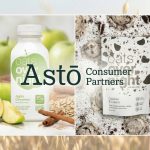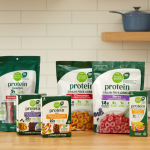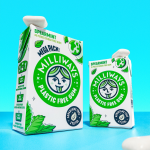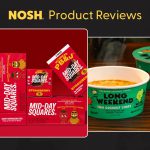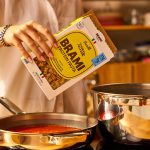Nestlé Acquires Freshly For $950M
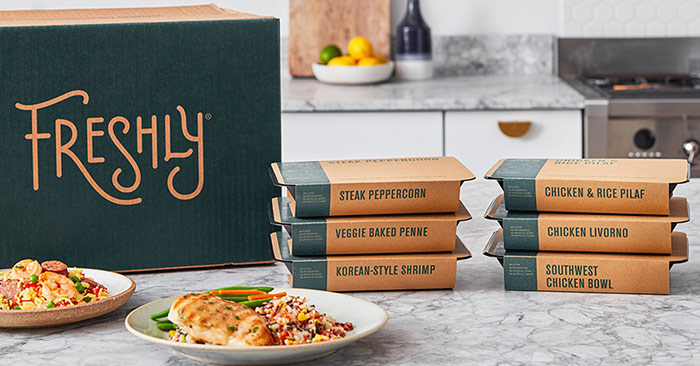
Having sampled the food delivery market, strategic Nestlé is looking for a bigger bite. The global food producer announced today the acquisition of meal delivery service Freshly, which it previously invested in. The company acquired Freshly for $950 million, with the opportunity for potential earnouts valued at an additional $550 million.
Freshly will continue to be run as a standalone unit from its headquarters in New York City.
Freshly currently delivers over one million meals a week, almost double its order levels of 600,000 in August 2019. The company is projected to surpass sales of $430 million in 2020, and has been profitable since 2019. Since its inception in 2015, the company has shipped nearly 100 million meals across 48 states.
Freshly had raised over $107 million in funding from investors including Highland Capital Partners, Insight Partners, Nestlé, White Star Capital, Quadrille Capital and BrandProject. Nestlé led the company’s 2017 funding round of $77 million, taking 16% of the company, though it did not have future right of refusal for an eventual acquisition as part of that deal. Freshly Founder and CEO Mike Wystrach said the experience with Nestlé over the past three years showed him, and the Freshly team, that Nestlé was the right long-term partner.
“Since 2017, we’ve been able to leverage Nestlé’s expertise as the world’s largest food and beverage company in many areas – from their strong buying power to marketing and innovation,” Wystrach said. “Now as a part of Nestlé, Freshly will have access to even more resources, research and development, and years of experience.”
Begun out of a kitchen facility in Phoenix, Arizona, Freshly has since grown to 2,000 employees and six manufacturing and distribution facilities in Arizona, New Jersey, Maryland and California. Its offering differs from many other direct-to-consumer meal plans in that the meals just require heating in a microwave or oven, instead of more cooking and preparation.
Wystrach attributes the success of the company, and its profitability, to a focus on “efficient growth” and a business that has “high retention, efficient customer acquisition, fast payback and best in class margins.”
Subscriptions range from four single-serve meals a week to 12 meals per week, with pricing ranging from $11.49 per meal to $8.49 per meal, respectively. Each refrigerated meal has a shelf life of 4-5 days before it needs to be frozen to extend its expiration. The company offers 30 meals to choose from a week, a number Wystrach says will now triple under Nestlé’s ownership. Rather than focusing on any specific dietary trend, such as plant-based or keto, Freshly offers meals that stick to more macro trends such as “low calorie” or “high protein,” or that are free from allergens such as gluten, soy or dairy.
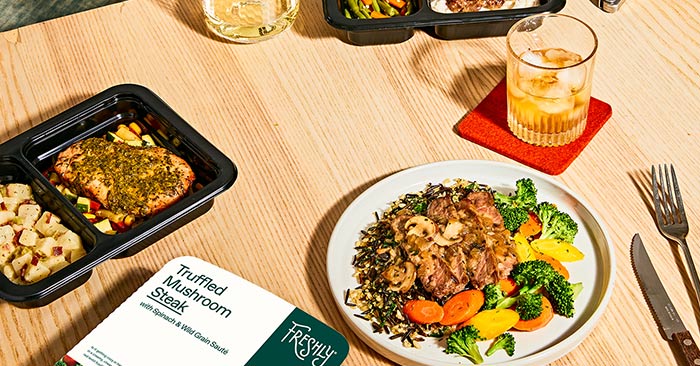
According to Wystrach, the partnership will allow Freshly to directly benefit from Nestlé’s research and development capabilities and “deep understanding of what and how people eat at home,” marrying product capabilities with Freshly’s current offering and distribution network.
As the Covid-19 pandemic has pressed on, large CPG companies have looked to find new ways to get their products into the hands of consumers directly. Not only are shoppers increasingly turning to more online solutions in order to avoid going inside of retailers, but by going directly to shoppers, brands can skip delays caused by backups at distribution centers or retailers. Nestle sees Freshly as a “food-tech startup,” and though it values the product itself, was also drawn to the company’s proprietary consumer analytics platform and existing expertise with D2C.
“We are investing for the future….Freshly accelerates Nestlé’s ability to capitalize on the new realities in the food business, embracing this shift in how consumers eat,” Nestlé USA Chairman and CEO, Steve Presley said. “Consumers’ buying patterns and shopping behaviors have been changed forever.”
Nestlé has deep experience with the prepared meals segment, owning Lean Cuisine, Hot Pocket, Stouffer’s, DiGiorno, and Tombstone. But despite a spike in sales at the start of the pandemic as consumers searched for familiar favorites, many of these brands have struggled over the long-term to remain relevant to a younger, and increasingly more natural-focused, consumer. On its third quarter earnings call earlier this month, Nestlé reported that its frozen food division reported high single-digit growth and Lean Cuisine “returned to positive growth” due to the “successful launch” of Life Cuisine, Lean Cuisine’s sub brand focused on trends such as gluten-free to high-protein offerings.
The company acquired plant-based brand Sweet Earth in 2017 and has rapidly spun that brand out into a number of new categories including burritos, burgers, ground meat alternatives, deli meats, sausages, entree bowls and even jerky. It’s also begun to integrate the brand into Digiorno and Stouffer’s offerings.
A company release perhaps alludes to Freshly’s own future integration with Nestlé’s other brands, with Presley stating the deal will “fuel growth opportunities… across Nestlé’s portfolio.” That said, Presley confirmed that the company has no plans to bring the brand into brick and mortar retail. Meanwhile, Wystrach said there are currently “no plans to change ingredients or integrate Nestlé products into Freshly meals, but we are excited about potential opportunities for the future.”
